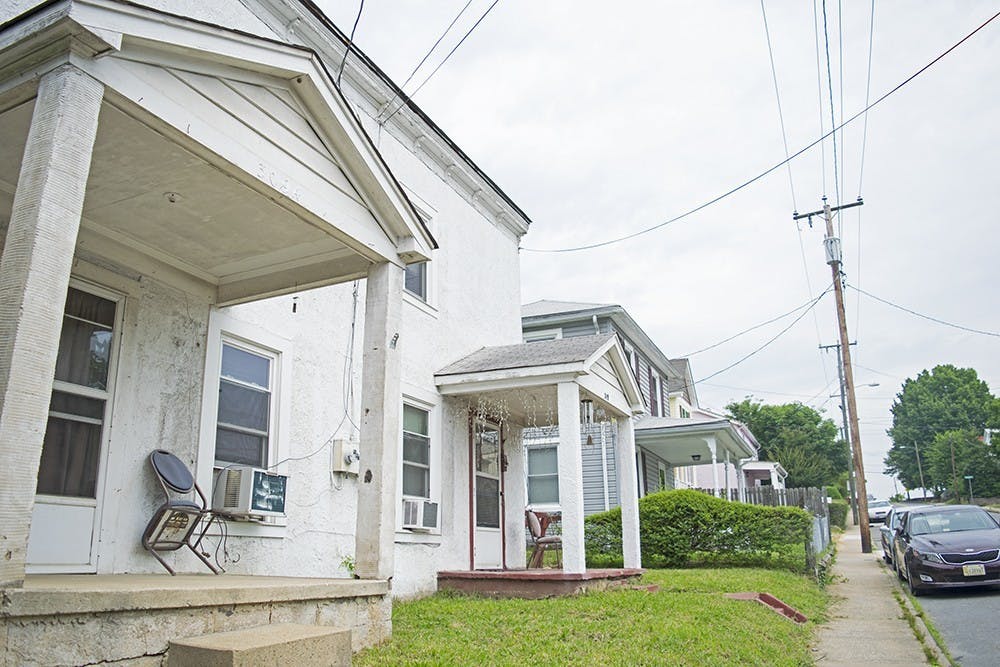Charlottesville is facing a crisis in housing and rent. Since 2012, costs have been on the rise, while gentrification, financial strain and weak infrastructure have only exacerbated the problem. As one of the highest ranked cities for wage gaps, residents, especially Black residents, have struggled to make ends meet when it comes to housing. To combat this issue, Charlottesville and the University must go further than they currently have to control the rising cost of living in the City for the sake of all residents and with equity in mind. I believe implementing a more rapid plan than the 2030 Plan to create on-Grounds affordable housing for students and setting up a rent control board for the City are key to fixing Charlottesville’s crisis.
The area median income in Charlottesville has also risen at an alarming rate in the past years, jumping a whopping 19 percent last year alone. This reflects a general trend in white residents moving into the City and Black residents who have been in Charlottesville for over 30 years being displaced. The City has a long history of gentrification, from racist zoning throughout the Jim Crow Era, the razing of Vinegar Hill, and the preferential treatment given to white people when applying for affordable housing. Today, the effects of gentrification are felt all over, especially when it comes to areas neighboring the University. Lower cost housing is often unavailable for Charlottesville residents, as it is quickly snatched up by students. Without understanding the historical precedent upon which this crisis is built, we won’t be able to properly combat it. Recognizing the history of housing in Charlottesville is a necessity just as much as affordable housing solutions are.
While great strides are being made in President Jim Ryan’s plan to have second years living on Grounds and expand affordable housing options for students through University housing, more needs to be done right now given the University’s over $500 million in property in the City. The University has also raised wages to $15 an hour, yet this increase barely begins to tackle the unaffordability of rent combined with cost of living — MIT’s living wage calculator found a wage of $19 was required to make it in the city. As one of the largest employers in Charlottesville, the University is intimately tied to the community — its actions must reflect this.
To take a more active role in addressing the Charlottesville housing crisis, I think the University should put its non-profit status to the side and find a way to contribute to the City’s affordable housing fund by paying the income tax it currently is exempt from. By not contributing to the City in property tax, the University avoids a crucial way of supporting its employees. If the University were to pay the tax, the revenue would add an additional $15 million to the City’s budget every year. Moreover, if there are concerns by the University about losing nonprofit status, creating a fund to address the housing issue and collaborating with the Charlottesville Affordable Housing fund to match what it would pay in property tax could be a solution that would allow for the maintenance of the non-profit status while simultaneously creating a more mutually beneficial relationship with the City. Secondly, expediting the process of the 2030 Plan to increase on-Grounds housing and it would be easy for the University to double the current number of affordable housing projects it is currently planning given its large investments in real estate. Doing so is the only rational choice in the face of this crisis, as without the labor of Charlottesville’s residents the University would not function. It is the very least that the administration can do to provide for its employees.
As for local government, so far the Charlottesville Affordable Housing Plan is a great undertaking and the expansion that was recently voted upon is wonderful news. The plan currently allocates $10 million to solutions like developing more housing and providing tax relief. It also will adjust zoning policies to create more multi-family zoning as opposed to single-family zoning which has historically been used as a tool of segregating neighborhoods. That being said, more can be done when it comes to zoning and rent control. In particular, changing zoning practices to include upzoning in currently single-family areas and considering forming a rent control board could all provide pertinent solutions. In the field of affordable housing, seeing an increase from the University paying property tax or adding to the fund would lead to a much greater ability to expand current projects. A rent control board would be able to stabilize rent by putting caps on the amount a landlord can increase rent after a tenant moves out, as well setting caps on rent hikes based on what the market can bear and in line with affordable housing projects. This board would be appointed by the city council and would be made up of tenants, landlords and homeowners in a way that accurately reflects Charlottesville population and centers equity of access to housing at the forefront.
While the crisis seems dire, there are real solutions that we must take to fix it. Rent control scares some people, yet it is an injustice to allow people to go without housing because they face financial insecurity and discriminatory housing practices. To right wrongs and ensure that Charlottesville has a sustainable future, rent control is the best solution. It has proven effective in cities around the United States and can be done in a way that gives everyone a fair say in the process. Charlottesville must act now to save itself in the long run and protect tenants rights.
Ryan Lanford is an Opinion Columnist for The Cavalier Daily. They can be reached at opinion@cavalierdaily.com.
The opinions expressed in this column are not necessarily those of The Cavalier Daily. Columns represent the views of the authors alone.







